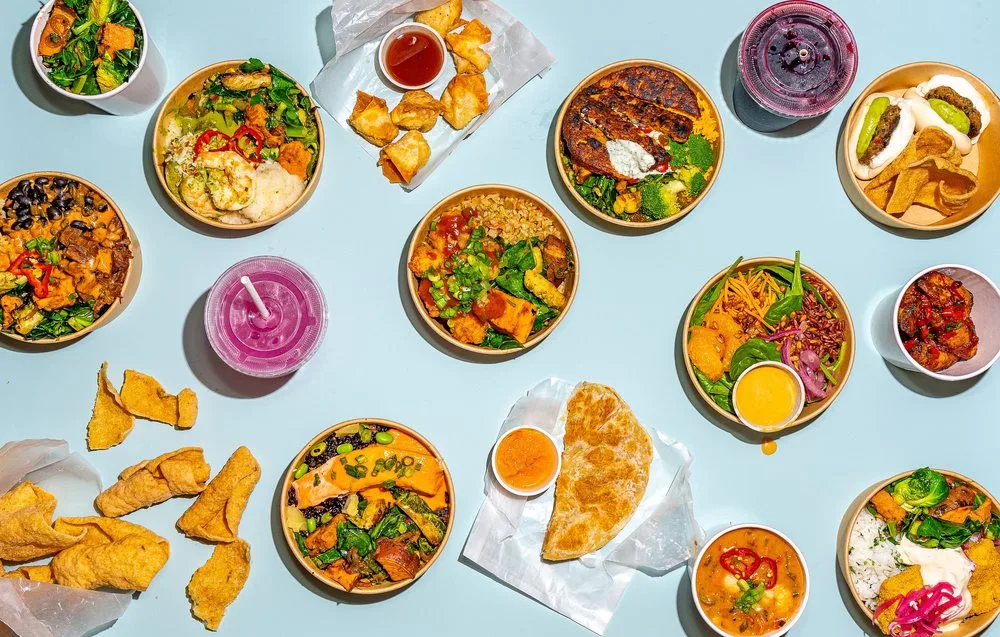Chef JJ Johnson on breaking the status quo in life and business
The James Beard Award-winning owner of FIELDTRIP reflects on key lessons in life and business that helped him grow as an entrepreneur, chef, and father.

Chef JJ Johnson lives and cooks by the mantra, “rice is culture.” The James Beard Award-winning chef, TV personality, and author discovered a passion for West African grains while cooking in restaurants across Ghana. Determined to show American diners how rice connects us all, he founded his fast-casual rice bowl concept, FIELDTRIP, infused with the Caribbean flavors of his upbringing.

Since opening FIELDTRIP in Harlem in 2019, Chef JJ has expanded to three locations in New York City and continues to dazzle Yelp reviewers with “consistently flavorful, high quality, and healthy meals.”
In his keynote address at Yelp’s Black in Business Summit, Chef JJ reflects on the lessons in life and business that have helped him grow as an entrepreneur, chef, and father.
Business: FIELDTRIP
Owner: JJ Johnson
Location: New York City
Business mission: Celebrate culture through the shared experience of rice
Favorite U.S. restaurants: Compère Lapin and Bywater American Bistro by Chef Nina Compton in New Orleans
Most helpful lesson: “Richard Parsons, former CEO of Citigroup and Time Warner, said banks go out of business because nobody’s paying attention to the cash. I look at my bank account every morning when I wake up. I never go a day without checking my cash flow.”
Book or podcast recommendation: How I Built This with Guy Raz and Franchise: The Golden Arches in Black America by Marcia Chatelain
Key business takeaways:
- Set yourself up for success. Redline your deals to make sure that you’re getting what you need. Ask for it all and let them tell you “no.”
- If you’re a new business on the block, get to know your community. Let them know you’re here for them—and follow through with action, like mutual aid or outreach programs.
- Practice open communication with the people in your life. They need to see or hear what your entrepreneurship looks like to truly appreciate your time and effort.
Keep reading for more lessons from Chef JJ’s keynote address at Yelp’s Black in Business Summit.
1. Question the status quo
I went to culinary school, and I was the worst person in the kitchen. I didn’t have really good knife skills. I didn’t know the lingo. I didn’t fit in. The code of conduct wasn’t how I act in my household around my friends or my family. Being in culinary school was like, “Oh, I need to learn how to cook French food. I need to know how to cook Italian food. I need to learn how to cook Eurocentric.” Everything I learned from my grandmother or my parents or family, that was nonexistent there. That wasn’t good enough.
It was when I got invited to cook in Ghana that I found myself through food. I was this real kid of the African diaspora. These flavors were very familiar, and I started to question myself and also question the industry: Why isn’t anybody talking about the motherland? Why aren’t we exploring these flavors?
Doing heavy research on West African cooking, I came across this grain called glaberrima, which is like the mothergrain of all rice. I had this love for rice because when I was traveling the world—Ghana, Singapore, India, Israel—rice would come to the table, and people would go crazy for it. But in the U.S., you look at the news and people are like, “Don’t eat too much of that rice, it’s not good for you.” I was like, “No, these are all false narratives around rice.’ So I really wanted to open up FIELDTRIP [to show that rice is culture.]
2. Be a good neighbor
I chose Harlem [for my first location] because I wanted to have people that look like me to consciously eat better, to have a choice to eat better. When you walk around Harlem, it’s all fried chicken joints, and these big brands are telling folks, “Nobody wants your healthy-ish type of food.” But the Black community is based on grains, rice, and vegetables. It’s not based on fried chicken and fried fish—those are our celebratory moments.
View this post on Instagram
Still, it was hard opening in Harlem because a lot of people thought it was a white business, that I was there as a front and I was infiltrating the community. I just had to talk to people, like: “Hold on. Why can’t we as Black people have nice stuff too?” That’s how the conversation started. My family started coming in and bringing their friends, this person was telling this person, and then the pandemic happened.
The pandemic really brought a lot of awareness in the community for all that we were doing as a new business on the block, [donating over 220,000 meals to support the Harlem community and to feed frontline workers.] I never closed FIELDTRIP during the pandemic. For us, there’s always hard days, right? My dad would always say, “You don’t have hard days, man. This is what it is being Black.” You have to work hard, you gotta get through it, you gotta push. Closing was never an option. Also the people working for me, what were they going to do if I closed? It’s about fighting through and figuring out who’s going to believe in you in the process.
3. Ask for what you need, and let others tell you “no”
In my early days, I would take opportunities because I believed they would never come again. [When we were catering the U.S. Open Tennis Championships,] I was like, “Oh my god, I gotta figure out how to make this work. The kitchen is not set up the way I need to be set up, but I’ll set it up.” That doesn’t always work—just figuring it out as you go. The space wasn’t designed for us, so we maxed out on our sales numbers because we couldn’t push out any more food. If it was set up like it was supposed to be, we would double, triple those numbers.
That’s when it hit me: Set yourself up for success. Redline those deals to make sure that you’re getting what you need. Ask for it all and let them tell you, “No, we can’t do it,” and then you can make the decision on, “Okay, I can do this,” or “This is a deal breaker for me, and I gotta step away from this one.” And maybe they’ll come back. Or maybe I’ll move on and know there’s something else for me inside the tunnel. That is when the tunnel shows the light.
4. Parent (and partner) with open communication
I’m a parent of two six-year-old twins. I’ve learned that Chef JJ is like my alter ego to them. [My job requires a lot of] communication with my wife and my kids, like: “This is what’s going on, this is what’s taking place. I’m working hard.” You have to be very communicative around it. I can allow for my children to partake in some of the things that go on … making them feel very much a part of it so there’s no disconnect.
Sometimes it’s not just the children—it’s your spouse, your partner, who might not understand what you’re doing because there’s no playbook for entrepreneurship. Everybody’s yellow brick road is different. So you have to have that open communication [with the people in your life.] They need to see it or hear it, versus you just assuming that they get it. You can share your whole vision. I used to think my six-year-old kids didn’t get it, but they pay attention to a lot.
There’s no playbook for entrepreneurship. Everybody’s yellow brick road is different.
JJ Johnson
5. Respond to reviews, positive and critical
Yelp gives us valuable information to operate the business better. One person writes a review and they go, “My food was salty.” Three days later, someone reviews, “I felt like there was too much salt.” I’m able to be like, “Hold on, I see this keyword of salt constantly popping up. Let’s go back and taste the food and see if it is salty.” Let’s bring a collaborative bunch of folks that work here, and we’re going to do a taste-test.
You should be using Yelp as a useful resource, and you should be responding to folks who are leaving reviews—good or bad. It shows people who are utilizing Yelp to tell them where to go and eat that this business cares about the good and the bad, and it will give you more revenue. So we respond to a lot of reviews.

At our Rockefeller Center location, I constantly see tourists [on their phone]. They won’t order the food. They’ll be like, “Should we come here?” People use Yelp and go, “Okay, what did they eat? What do the pictures look like?” And you can upload your own pictures. That’s what we do, and it definitely drives people. Use Yelp to your advantage to help run your business better so that people know how to search you.
Pro tip: These five tips for responding to online reviews will help you navigate even the trickiest customer feedback.
For more insights from Chef JJ, watch his keynote session below from Yelp’s third annual Black in Business Summit—now available on demand along with all other sessions from the day.
Photos from FIELDTRIP on Yelp